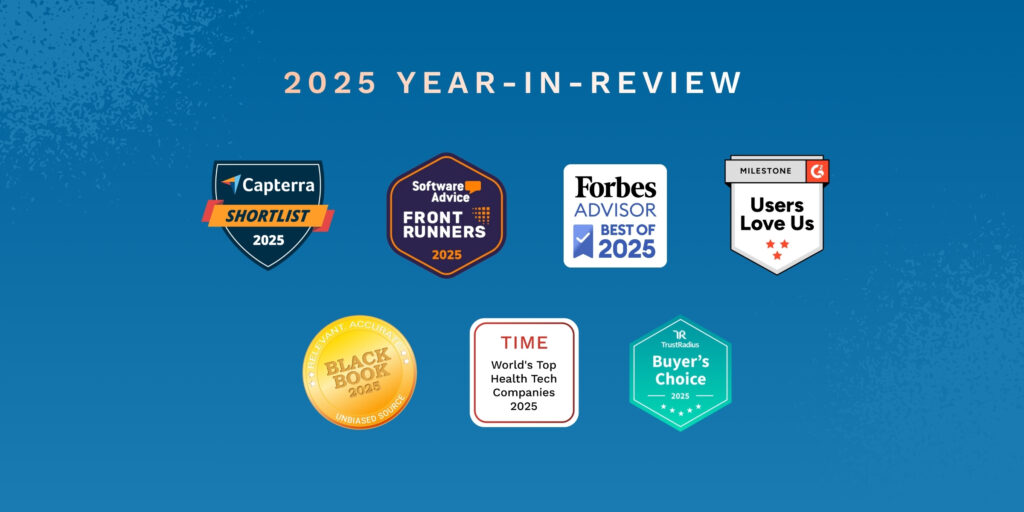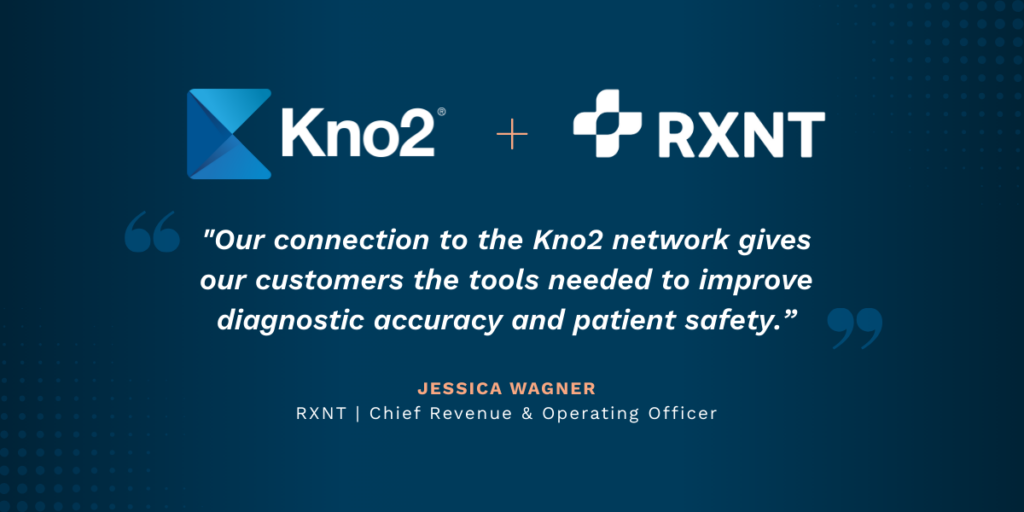AI solutions promise to streamline repetitive tasks, and most HCPs (57%) plan to integrate AI tools into their daily workflows soon. While the numbers are encouraging, introducing new technology can be daunting. The real challenge is making the transition to AI tools smooth and non-overwhelming for your team.
Healthcare professionals are all too familiar with the frustration of administrative tasks that take hours from their day—time that could be spent caring for patients rather than on mundane, time-consuming tasks. In fact, 66% of healthcare professionals (HCPs) agree they lose a significant amount of time on administrative tasks.
That’s what makes AI tools so alluring. AI solutions promise to streamline repetitive tasks, and most HCPs (57%) plan to integrate AI tools into their daily workflows soon. While the numbers are encouraging, introducing new technology can be daunting. The real challenge is making the transition to AI tools smooth and non-overwhelming for your team.
Provide Resources Before and After Implementation
When integrating AI tools into your practice, the key to success lies in effective training. It’s crucial to introduce the tool and help your team understand how it fits into their daily workflow and enhances their productivity. AI might seem intimidating at first, but with the right support, your team can learn how to leverage it effectively.
Remember: AI is not a one-size-fits-all technology—it’s tailored to specific use cases within your practice. Whether it’s managing patient data, automating appointment scheduling, or streamlining billing processes, healthcare professionals need practical and relevant training.
Focus on providing up-front and ongoing training for your dedicated AI tools, something that your software provider can likely offer. Ensure users can clearly see how they’ll use tools in their daily workflows and provide actionable examples.
Encourage Deeper Integration of AI for Daily Tasks
AI tools are not meant to replace clinical judgment or decision-making—they’re designed to enhance administrative processes. Reinforce this message so your team doesn’t feel threatened or confused about the role of AI in their work. AI can act as an assistant, processing data and providing suggestions that help your team make decisions faster and more accurately.
Remind them that AI’s main role is to handle time-consuming administrative tasks, like managing patient appointments or billing, so that healthcare professionals can focus on delivering patient care. Reinforcing this fosters a better understanding of how AI supports their essential roles rather than replaces them.
Explain How Tools Will Save HCPs Time, Not Add to Their Workload
Introducing new technology can sometimes be met with skepticism. Healthcare professionals are often concerned that another tool will add to their already busy schedules. That’s why it’s crucial to highlight the time-saving benefits of AI from the outset.
Studies have shown that AI can significantly reduce time spent on administrative tasks. This means that when properly implemented, AI tools will give your team more time to focus on patient care, not more tasks to juggle. Whether it’s automating insurance verifications, streamlining patient communication, or providing real-time analytics, AI will help to ease the administrative burden.
Incorporate AI Tools into Your Most-Used Systems
Change is hard, and learning an entirely new system can be overwhelming. Instead of introducing a completely new platform, consider integrating AI into the systems your team is already familiar with. Many healthcare technologies—such as electronic health record (EHR) systems—already offer AI capabilities. These features are often underutilized, so it’s a matter of making sure your team is aware of and comfortable with them.
Integrating AI into existing workflows reduces the learning curve and ensures that the transition feels less disruptive. It’s a subtle way to ease your team into AI adoption without the stress of overhauling everything at once.
Gather and Implement Team Feedback
Feedback is one of the most powerful tools in ensuring a smooth AI adoption process. Instead of waiting for your team to voice their frustrations after encountering problems, take a proactive approach. Actively solicit feedback throughout the implementation process. Whether through regular check-ins, surveys, or feedback sessions, create a space where your staff feels comfortable sharing their experiences, concerns, and suggestions.
Listening to your team’s feedback during AI integration shows them that their input is essential. It fosters a culture of collaboration and trust, making it easier to address issues early on before they become larger problems. When team members see that their feedback is taken seriously and acted upon, they’re more likely to embrace the new technology.
Ensure you have clear, accessible ways for your team to communicate their thoughts. This could be through regular meetings, surveys, or one-on-one sessions with staff. Regardless of the method you choose, it’s important to take action on any concerns your team brings to your attention.
RXNT: Helping Your Team Transition to AI with Ease
Introducing AI tools into a healthcare practice doesn’t have to be overwhelming. By offering comprehensive training, emphasizing time-saving benefits, integrating with existing systems, and maintaining open lines of communication, you’ll help your team navigate the transition smoothly. The key is to focus on the human element—your team needs to feel empowered, not burdened, by the new technology.
To make the transition even easier, there’s RXNT. Designed with simplicity in mind, our platform provides an intuitive user interface and seamless integration into existing workflows, making it easier for your team to adopt AI tools without the steep learning curve. Plus, our AI-powered solutions are built with healthcare professionals in mind, ensuring that the technology complements rather than complicates their day-to-day tasks.
By choosing solutions like RXNT, you can make the shift to AI tools more manageable, allowing your team to focus on what matters most—providing excellent patient care.
To learn more, schedule a demo today.





